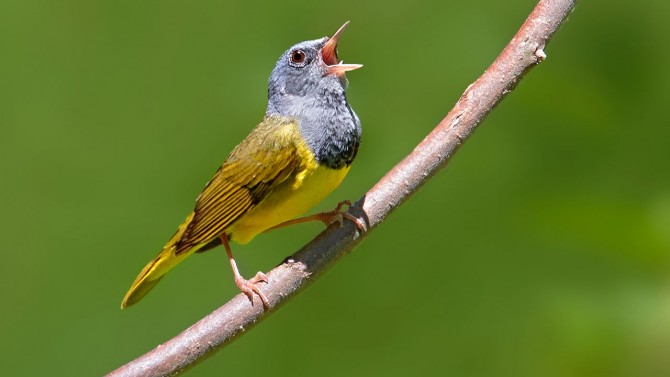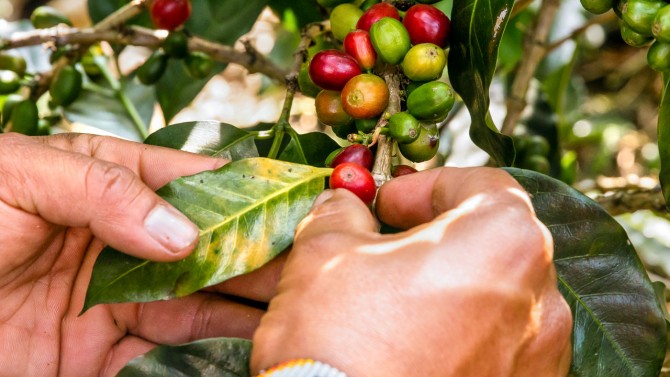Shade-grown coffee could save birds, if people drank it
By Pat Leonard
Shade-grown coffee has big benefits for bird conservation, but the message may not be getting through to the people most likely to respond – birdwatchers.
A team of researchers from the Cornell Lab of Ornithology and Virginia Tech surveyed birdwatchers to learn if they drank shade-grown coffee and, if not, why not.
“One of the most significant constraints to purchasing bird-friendly coffee among those surveyed was a lack of awareness,” said Alicia Williams, former research assistant at the Cornell Lab and Virginia Tech and lead author of “Tapping Birdwatchers to Promote Bird-Friendly Coffee Consumption and Conserve Birds,” which published March 1 in the journal People and Nature.
“I was surprised to see that only 9% of those surveyed purchased bird-friendly certified coffee and less than 40% were familiar with it,” Williams said.
Bird-friendly coffee is shade-grown, meaning it is grown and harvested under the canopy of mature trees, a process that parallels how coffee was historically grown. But with most farms converting to full-sun operations, crucial habitats for migrating and resident bird species are being lost. Loss of habitat is a key factor in the overall decline of many bird species.
“Over recent decades, most of the shade coffee in Latin America has been converted to intensively managed row monocultures devoid of trees or other vegetation,” said Amanda Rodewald, the Garvin Professor and senior director of the Center for Avian Population Studies at the Cornell Lab. “As a result, many birds cannot find suitable habitats and are left with poor prospects of surviving migration and successfully breeding.”
According to the survey, there’s confusion about what certifications exist, where to buy bird-friendly coffee and how coffee production impacts bird habitat.
“We know birdwatchers benefit from having healthy, diverse populations of birds, and they tend to be conservation-minded folks,” said Ashley Dayer, assistant professor in Virginia Tech’s Department of Fish and Wildlife Conservation. “We need to mobilize the estimated 45 million U.S. bird enthusiasts to help limit bird population declines. One way to do that is to encourage birdwatchers to seek out and purchase bird-friendly coffee, in stores and online.”
Increasing awareness about shade-grown coffee and its potential impact on bird populations may include more and better advertising, more availability of the product, and collaborations between conservation organizations and coffee distributors.
The study was co-authored with J. Nicolas Hernandez-Aguilera, Ph.D. ’17, of Columbia University; Tina Phillips, assistant director for engagement in science and nature at the Cornell Lab; Holly Faulkner-Grant, project assistant at the Cornell Lab; and Miguel I. Gomez, associate professor at the Charles H. Dyson School of Applied Economics and Management.
Pat Leonard is a staff writer at the Cornell Lab of Ornithology.
Media Contact
Get Cornell news delivered right to your inbox.
Subscribe


